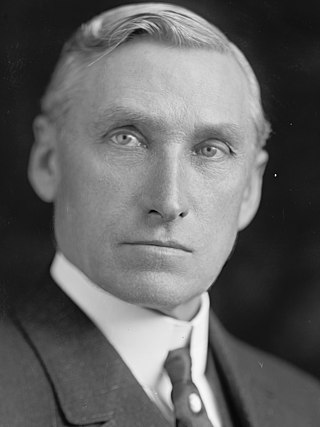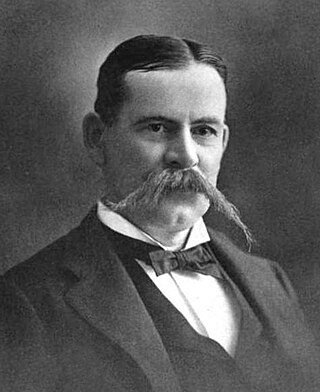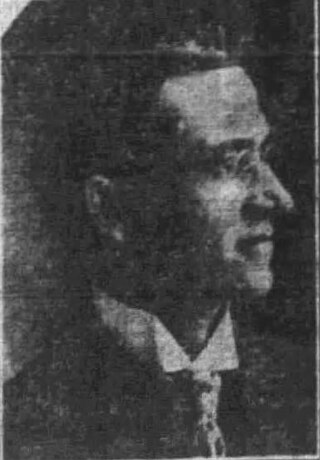Related Research Articles

Granville Henderson Oury was a nineteenth-century American politician, lawyer, judge, soldier, and miner.

Richard Elihu Sloan was an American jurist and politician, who served as associate justice of the Arizona Territorial Supreme Court, a United States district judge of the United States District Court for the District of Arizona and as the 17th and final Governor of Arizona Territory. As an Associate Justice he served for 16 years, the longest service of any member of the Arizona Territorial Supreme Court, and wrote over 150 legal opinions. As Governor he oversaw Arizona's transition from territory to statehood.

Sarah Herring Sorin was Arizona's first woman attorney and the first woman to try a case in front of the United States Supreme Court unassisted by a male attorney. Sorin practiced law with her father William Herring in the firm "Herring & Sorin" initially in Tombstone, Arizona, and later in Tucson. After her father's death, Sorin moved to Globe, Arizona, where she became the attorney for the Old Dominion Copper Company and United Globe Mines. Sarah Sorin is a member of the Arizona Women's Hall of Fame.(See photo of Sarah Herring Sorin in the Arizona Library Archives.) She is also included in Stanford Law School's Women's Legal History Biography Project.

Frederick Augustus Tritle was an American politician, businessman, and attorney. He served as the sixth Governor of Arizona Territory and held a number of lesser government positions there and in Nevada. He presented the silver spike used at the Promontory Point was held ceremony in May 1869. Tritle was the first governor to have visited Arizona before his appointment and also the first governor to make the territory his lifelong home.

Anson Pacely Killen Safford was the third Governor of Arizona Territory. He was also a member of the California State Assembly from 1857–1858. Affectionately known as the "Little Governor" due to his 5-foot-6-inch (1.68 m) stature, he was also Arizona's longest-serving territorial governor. His work to create a public education system earned him the name "Father of the Arizona Public Schools". Safford is additionally known for granting himself a divorce.
The 13th Arizona Territorial Legislative Assembly was a session of the Arizona Territorial Legislature which began on January 12, 1885, in Prescott, Arizona. The session's accomplishments included allocation of a variety of territorial institutions including a university, normal school, prison, and insane asylum. Nicknames bestowed to the session include the "bloody thirteenth" due to fights in the halls of government and nearby saloons, and the "thieving thirteenth" due to the very large appropriations approved by this legislature.

Edmund William Wells was an American jurist, businessman, and politician. Known as "Arizona's first millionaire", he was considered the richest man in Arizona during his attempt to be elected Governor of Arizona. He served as Attorney General of the Arizona Territory before being appointed as a judge. He also served as a member of Arizona's constitutional convention.

The Cochise County Cowboys is the modern name for a loosely associated group of outlaws living in Pima and Cochise County, Arizona in the late 19th century. The term "cowboy", as opposed to "cowhand," had only begun to come into wider usage during the 1870s. In that place and time, "cowboy" was synonymous with "cattle rustler". Such thieves frequently rode across the border into Mexico and stole cattle from Mexican ranches that they then drove back across the border to sell in the United States. Some modern writers consider them to be an early form of organized crime in America.

Charles A. Shibell was a teamster, miner, hotel owner, customs inspector, recorder, and Pima County, Arizona County Sheriff and a contemporary of Wyatt Earp and his brothers. Shibell promised a job as Deputy Sheriff to Earp, but when Earp announced his support for Bob Paul as the next sheriff, Shibell appointed Earp's antagonist Johnny Behan to the position instead.

Robert Havlin Paul, commonly known as Bob Paul, was a law enforcement officer in the American Southwest for more than 30 years. He was sheriff of Pima County, Arizona Territory, from April 1881 to 1886. He was also a friend of Deputy U.S. Marshall Virgil Earp and his brother Wyatt Earp. At 6 feet 6 inches (1.98 m) and 240 pounds (110 kg), he was described as "larger than life". Others described him as "powerful, fearless and very lucky".

Albert Cornelius Baker was an American jurist and politician who was the only person to serve on both the Arizona Territorial Supreme Court and the Arizona Supreme Court. As a judge he served four years as Chief Justice of the Supreme Court of Arizona Territory and two-and-a-half years as a justice of the Arizona Supreme Court. Politically he was a member of the Arizona Territorial Legislature and a delegate to Arizona's constitutional convention.
William Henry Stilwell was an American jurist who served as Associate Justice of the Arizona Territorial Supreme Court from 1880 till 1882. Following his removal from the bench, he remained in the territory where he was active in Republican politics and became an expert in mining law and water rights.

Alexander Parker Crittenden was a 19th-century pioneering attorney and politician in California, and a member of the influential Crittenden family of Kentucky.
William Kidder Meade was an American politician who served as a United States marshal and two-time member of the Arizona Territorial Legislature.
Robert Nelson "Bob" Leatherwood was an American businessman and politician who served three terms in the Arizona Territorial Legislature and two years as Mayor of Tucson, Arizona Territory.

Clark Churchill was an attorney and politician in the American territory of Arizona. He is best remembered for having served as the Attorney General of Arizona from 1883 to 1885.

George Waldron Cheyney was an American businessman and politician. While living in Tombstone, Arizona Territory he served four years as the territory's Superintendent of Public Instruction and was twice elected to the territorial legislature. In his later years he was postmaster for Tucson, Arizona before being elected a probate judge.
Lionel Mark Jacobs was an American businessman and politician. Moving to Arizona Territory with his brother in 1867 to open a mercantile business, his business interests expanded into financial services and he was a co-founder of Tucson's first bank. Politically he was a member of the Arizona Territorial Legislature and served as territorial treasurer.

Lawrence Oscar Cowan was an American judge, state legislator, city official, businessman, and miner in the Arizona Territory and state in the late 19th and early 20th centuries.

John T. Hughes was a politician from Arizona who served in the 1st Arizona State Legislature. He was also a newspaper man, editing and publishing his father's paper, the Arizona Daily Star, and an attorney, the first native-born Arizonan to be admitted to the Arizona bar. Additionally, he had several mining and real estate interests.